On a mission to rid your beauty routine of the worst ingredients for skin? You're not alone. But if you're just starting out, you might be feeling a little overwhelmed. There's a lot of information out there. In some ways all that intel is a good thing - we all want to be informed. But there's such a thing as too much information. It can be overwhelming to try to wade through all the data out there. Sometimes it's so complicated it can be hard to get started. So let's simplify!
Let's get started with the top five worst ingredients for skin. Use this list as a guide to transform your own beauty routine, or show it to a friend who's considering a transition to natural products. Even if you only eliminate these five ingredients from your skincare routine, your skin will be healthier, happier, and look so much better. Ready? Let's dive in!
The Top Five Worst Ingredients for Skin (And What You Can Use Instead)
1. Parabens

What are they? Parabens are a type of preservative. They give products a longer shelf life by keeping mold and bacteria from growing. You'll know a product contains parabens if the label contains the words "butylparaben," "methylparaben," or "propylparaben." You'll find parabens in a huge range of health and beauty products, including moisturizers, shampoos, and cosmetics.
Why should you avoid them? Parabens penetrate your skin and enter your body. Once inside, they can hang around. A 2004 study found traces of 5 different parabens in the breast tissue of 19 out of 20 women studied. While that doesn't necessarily mean that parabens cause cancer, it does show that they absolutely build up and stay in your body. What we do know is that parabens mimic the hormone estrogen. If you have too much estrogen (or estrogen-mimicking substances) in your body, you have a higher risk of breast cell division and tumor growth. Parabens may also disrupt your endocrine system, leading to reproductive and developmental disorders.
Alternatives to parabens: depending on a natural product's formulation, it may or may not need a preservative. Products that are water based generally do. Antioxidants, Vitamin E oil, and rosemary oil extract can all help extend the shelf life of a natural product. Anti-microbial substances, such as grapefruit seed extract, can further hinder the growth of substances that can impact a product's shelf life.
2. Sodium Lauryl Sulfate
What is it? Sodium Lauryl Sulfate (SLS) and its cousin Sodium Laureth Sulfate (SLES) are surfactants. Surfactants cause the sudsy foaming effect you see in shampoos, soaps, and shaving gels. Why should you avoid it? SLS is one of the worst ingredients for skin due to its tendency to cause irritation. It can strip your skin of its natural oils, leading to dry skin, itchiness, and reactions. In some cases it can lead to eczema, dermatitis, and acne around the mouth and chin. SLS and SLES are also very irritating to the eyes, which is problematic as they are often found in shampoos and face wash.
Alternatives to SLS and SLES: There are two major approaches to avoiding SLS and SLES. The first is to use natural surfactants. Ingredients like Decyl Glucoside give you that satisfying foam without irritation or other side effects. It is a mild non-ionic surfactant used in cosmetic formularies including baby shampoo and in products for individuals with a sensitive skin. Many natural personal care companies use this cleanser because it is plant-derived, biodegradable, and gentle for all hair types. You'll find it in natural products like foaming cleansers. The other approach is to forgo the foam altogether. After decades of using foaming products, we associate "suds" with "clean." However, that's not really the case. A product's cleansing abilities don't come from foam - they come from other ingredients. Get comfortable with non-foaming products and you can get rid of SLS without much change in your routine.
3. Formaldehyde
What is it? When it comes to the worst ingredients for skin, formaldehyde is subtle. It's not an ingredient added to products. Instead, it's a byproduct produced by many conventional preservatives. Chemicals like Bronopol, Quaternium-15, and Diazolidinyl urea release formaldehyde as they decompose. The longer a product containing these chemical sits on a store or bathroom shelf, the higher the risk it contains formaldehyde. Why should you avoid it? Easy: it's a carcinogen. According to the International Agency for Research on Carcinogens, it can cause cancer in humans, including leukemia, pancreatic cancer, and skin cancer. It can also cause skin irritation, though compared to the cancer risk this seems like a minor issue.

Alternatives to formaldehyde: If you don't want to treat your skin to the same stuff that preserved the frog you dissected in biology class, look for products that contain natural preservatives. Use the same strategy you would to avoid parabens. Buy from businesses you trust to avoid formaldehyde releasing chemicals.
4. Fragrance
What is it? If you've been reading this blog long, you know all about my one-woman crusade against "fragrance." If you're new, here's the rundown. "Fragrance" is a word used on ingredient labels to stand in for any number of thousands of chemicals. Due to loopholes in US laws, manufacturers don't have to list individual chemicals that provide fragrance to their products. Why should you avoid it? If you use a product with fragrance, there's no way to really know what you're applying to you skin. You could be applying something completely harmless, or something extremely harmful. Some fragrances contain hormone disruptors. Others are extremely irritating and can trigger allergic reactions. Even if you're not worried about the worst ingredients for skin for your own sake, it's worth avoiding fragrance to help protect others who may be sensitive to them.

Alternatives to Fragrance: This is another area where there are two different strategies. First, you can choose to go fragrance free. Look for products that don't contain any fragrance at all. You'll avoid exposing yourself to unknown ingredients and help protect others from fragrance's effect. "But wait," you say. "I like it when my skin products smell good." That's great! Look for natural fragrances instead. Essential oils give products a huge range of amazing fragrances, and often provide additional benefits as well. You'll find them in many natural products, including moisturizers, facial cleansers, and even bath bombs.
5. Oxybenzone
What Is It? Oxybenzone is a very common ingredient in chemical sunscreens. It helps absorb UVA and UVB rays, reducing their impact on the skin. It is usually used with other sunscreen ingredients, as it is relatively weak on its own and helps to keep other chemicals from deteriorating under the sun. Why Should You Avoid It? To be honest, it's worth it to avoid all of the chemicals in sunscreen. Oxybenzone is the worst of the lot, though, because of its ability to mimic estrogen. Lab studies suggest that oxybenzone exposure may interrupt the hormone system. It can also cause skin irritation. According to the Environmental Working Group and the Centers for Disease Control and Prevention, more than 96 percent of American study participants have oxybenzone in their bodies. Those who report using sunscreen have higher exposures. This chemical builds up the more we're exposed to it, and it's impossible to say what constant exposure will lead to over time.

Alternatives to Oxybenzone: If you're trying to avoid the worst ingredients for skin, there's no better choice than switching to a mineral sunscreen. Unlike chemical sunscreens, where oxybenzone and other ingredients penetrate the skin and enter your body, mineral sunscreens protect your skin from the outside. This is better for your skin, better for your overall health, and even betterfor the environment. If you wear sunscreen on a regular basis (which you should!), making the switch to a mineral sunblock that contains natural ingredients can make a huge difference.
Are You Using Any of These Worst Ingredients for Skin?
Take a look around your bathroom. Are any of the ingredients listed above lurking in your favorite products? It might be time to make a switch. Let me know about what you find in the comments below.
And feel free to ask questions too! I know it can be intimidating to start evaluating your beauty rituals. Let me know if I can help make the process any easier. Small changes lead to big results, so don't wait to get the worst ingredients for skin out of your life.
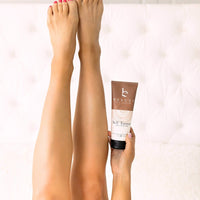
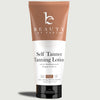
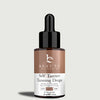
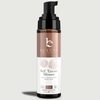
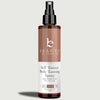
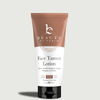
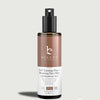
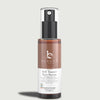
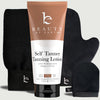
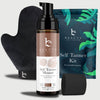

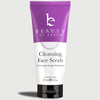
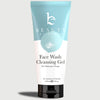

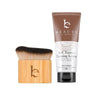











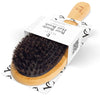
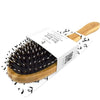
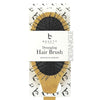
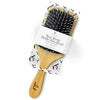
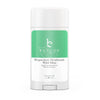


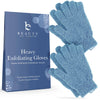
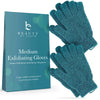
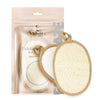


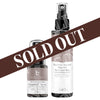





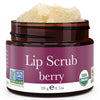
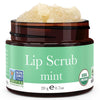
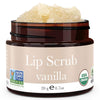





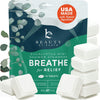
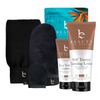
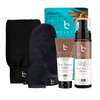


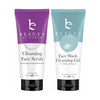
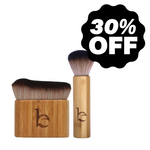
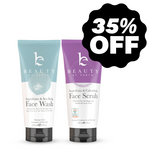















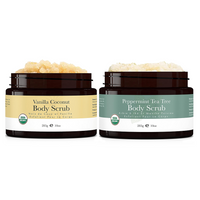
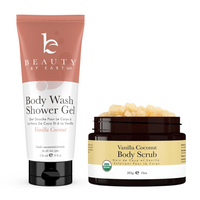
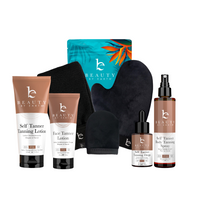
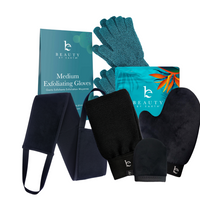
join the conversation